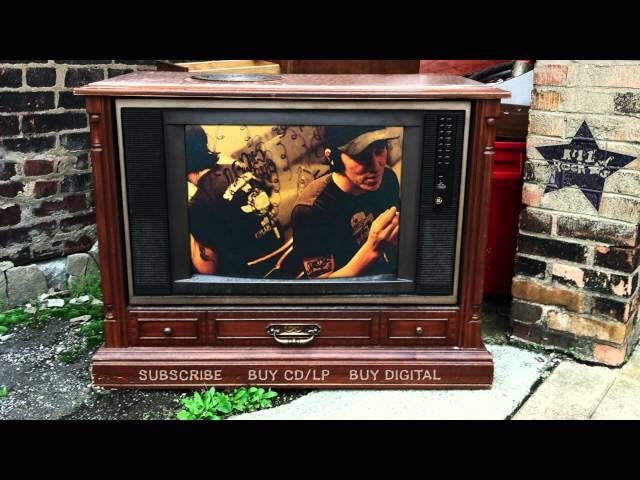Either/Or built the myth of Elliott Smith

Permanent Records is an ongoing closer look at the records that matter most.
Either/Or, the third solo album by the late Elliott Smith, isn’t the only Smith recording to pass a milestone anniversary in recent months. Last October marked two decades since the release of Mic City Sons, the swan song for Heatmiser, the Portland-based rock group that was Smith’s primary musical outlet from 1991 to 1996. There were no high-profile hosannas sung for Mic City Sons, no remastered reissue with bonus live tracks lovingly packaged in a gatefold sleeve. The album has its moments, but it’s not a canonical work; it’s an artifact from the major labels’ post-grunge gold rush, most interesting as the sound of a band changing its priorities in real time. For Smith cultists, it’s the origin point of songs they’ve come to know through concert bootlegs and rarities compilations, the last recorded work of Elliott Smith before he was, you know, “Elliott Smith.”
For 13 of those 20 years, who Elliott Smith was has been the subject of magazine profiles, two biographies, a book of photographs and interviews by his friend and collaborator Autumn De Wilde, an entry in the 33 1/3 series, and an extensive online oral history. The two stab wounds to the chest that Smith sustained on October 21, 2003, ended a life that was marked by trauma, a personal history with addiction, depression, and abuse that listeners were too quick to read into his music while he was still alive. “At first I thought of it as storytelling. It’s never seemed confessional to me,” Smith told The Boston Globe in 1999, the hometown paper of characters he’d soundtracked in the previous year’s Good Will Hunting. “I don’t need people to understand what it is to be me. It’s more like dreams… pieces are me and pieces are other people and pieces are some character I’m making up.” In true, self-contradicting, Elliott Smith form, it’s a sentiment that’s not too far removed from the chorus of Either/Or’s seething “Pictures Of Me”:
So sick and tired of all these pictures of me
Completely wrong
Totally wrong
That song and the 11 other tracks on Either/Or gave birth to the myth of Elliott Smith. His first two albums, Roman Candle and Elliott Smith, garnered Smith a following among Pacific Northwesterners and fellow musicians like Lou Barlow, Mary Lou Lord, and Slim Moon. As a member of Heatmiser, Smith’s work had attracted the attention of Virgin Records. But Either/Or was his breakout moment, a perfect album defined by its imperfections, a collection of bleary-eyed laments and narratives about the downtrodden, sung with inimitable gentleness. There were cleaner, bigger-budget productions in his future, but he wouldn’t have gotten to that point without the rawness and precision of Either/Or. Little more than a year after the album’s release, Elliott Smith would be an Oscar nominee. His path to show business’ biggest stage begins with the unedited “clunk” that heralds the beginning of Either/Or and its bracingly lo-fi opener, “Speed Trials.”
Either/Or represents many poles in Smith’s career. His first release post-Heatmiser would be his last for Kill Rock Stars, the indie stalwart founded by Slim Moon and Tinuviel Sampson in 1991. It’s the beginning of a three-record run with producers Tom Rothrock and Rob Schnapf (who’d also worked on Mic City Sons), and the end of Smith’s time in Oregon. The liner notes of Either/Or trace a farewell tour around the singer-songwriter’s adopted hometown, from references to geographic locations (“Alameda”) and local rituals (“Rose Parade”) to the names of fellow scene fixtures who gave him the space to lay down tracks (Joanna Bolme of Stephen Malkmus And The Jicks and Quasi; Larry Crane, with whom Smith would build Jackpot! Recording Studio). While Either/Or says goodbye, it makes a sideways introduction to the geographic muse on Smith’s horizon: “So good to meet you / Angeles.”
Either/Or is, in the purest sense of the word, a transitional work. (Something this very publication noted at the time of its release.) Whereas that term could connote incompletion and uncertainty, for Either/Or, it’s progression. No album so capricious—from the Kiekergaardian disjunction of its title to the “They want you or they don’t” of its closing track, “Say Yes”—should sound so confident, accomplished, and driven. But Smith was nothing if not confident, accomplished, and driven in the studio in the mid-1990s, qualities that are once more evident in the remastered tracks on Kill Rock Stars’ 20th-anniversary edition of Either/Or (due March 10). “He would record one live take of vocal and guitar together, and then he would just double to it once we got it,” producer Schnapf told Pitchfork in 2013.
 Keep scrolling for more great stories.
Keep scrolling for more great stories.
